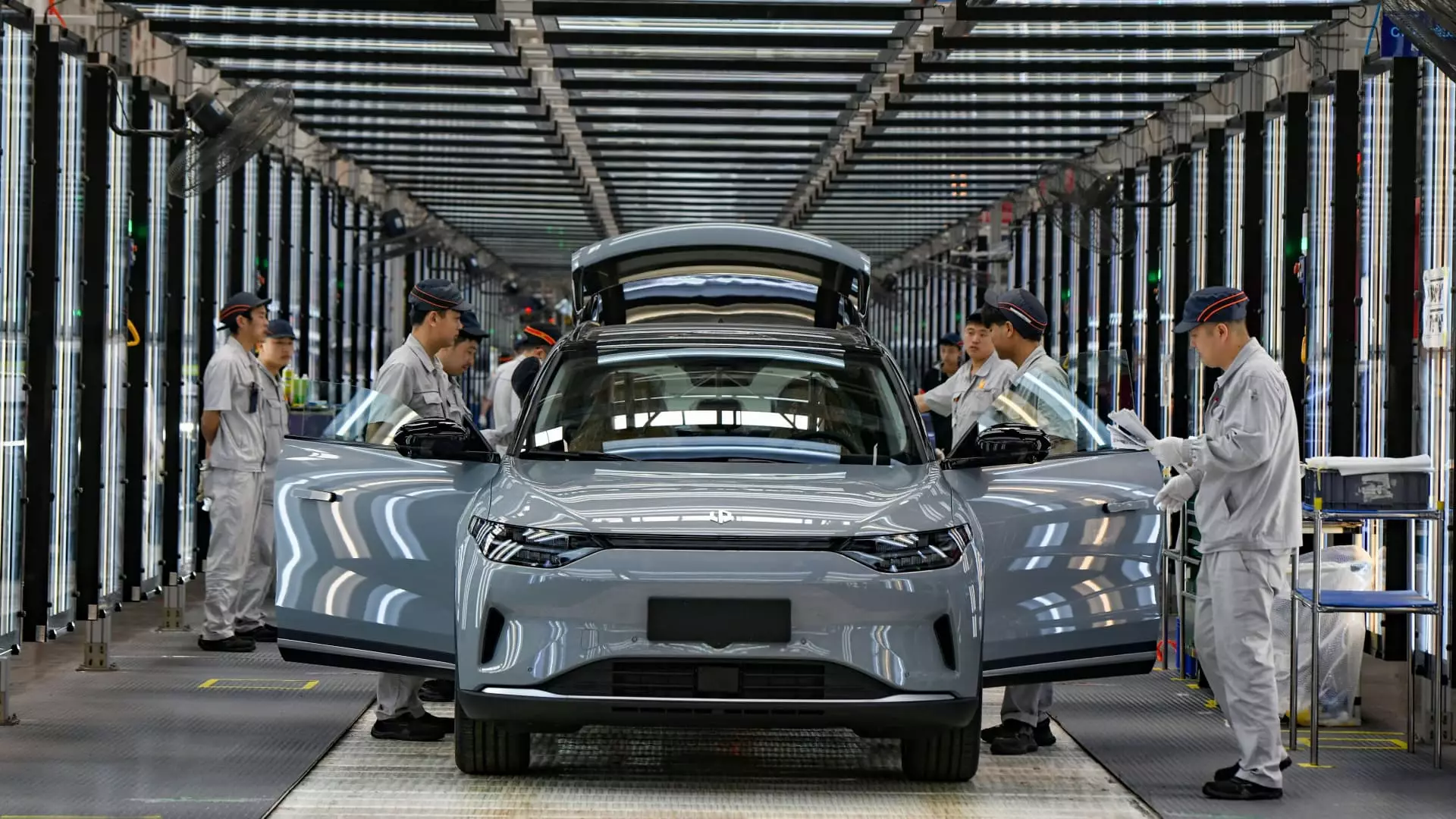The recent decision by U.S. President Donald Trump to implement tariffs on goods from Canada, Mexico, and China has sent shockwaves throughout the global automotive industry. With these measures, which include a 25% tax on specific imports from Mexico and Canada, alongside a 10% duty on Canadian energy products and various Chinese goods, the ramifications are profound. Investors and industry analysts alike brace for turbulent times as the threat of a trade war looms larger, raising concerns over market stability and long-term growth.
As the tariffs were announced last Monday, shares of leading car manufacturers showed a sharp decline. In the pre-market trade, General Motors saw a staggering drop of 6.6%, while Ford’s shares fell over 4%. The negative sentiment wasn’t limited to North America; European manufacturers and their suppliers also experienced significant losses. For instance, Valeo, a key player in French automotive parts, saw its stock tumble by 7.8%. German automaker Volkswagen and Italian auto group Stellantis also registered drops of approximately 6%. In Asia, Japanese manufacturers such as Toyota and Nissan didn’t escape unscathed, each witnessing declines of over 5%.
The decline in stock prices reflects an overarching concern among investors: the tariffs may trigger a broader trade war, disrupting the intricate supply chains that characterize the modern automotive industry. With many manufacturers relying heavily on cross-border supplies and production, the anticipated cost increases could lead not just to higher prices for consumers but also to reduced profits for automakers.
The complexity of global automotive supply chains makes the industry especially vulnerable to such economic policies. Many automotive companies have long depended on factories in Mexico for parts and assembly. If tariffs lead to increased production costs, manufacturers like General Motors and Ford may be forced to reconsider their operational strategies. In essence, the interconnected nature of automotive manufacturing means that an economic hiccup in one region can reverberate across the globe, impacting production rates, costs, and revenues.
Industry analysts have painted a grim picture of the future, cautioning that tariffs could significantly alter the competitive landscape. The potential for rising costs associated with importing parts and vehicles could lead U.S. companies to reconsider their sourcing strategies, impacting jobs and manufacturing in both the U.S. and abroad.
The retaliation by Canada and Mexico, who have announced potential tariffs of their own, further complicates this already tense situation. These countries have indicated their willingness to respond to U.S. measures in kind, which may escalate into a tit-for-tat tariff war. This possibility raises alarms particularly with respect to the European Union. President Trump hinted that the EU could be next in line for tariffs, which could significantly impact the already fragile transatlantic automotive trade.
The EU’s automotive industry, a cornerstone of its economy, could see exports to the U.S. dwindle as tariffs drive up vehicle prices. A recent report from Oxford Economics highlighted this precarious balance, indicating that increased tariffs could deter U.S. consumers from purchasing European cars, leading to a sharp decline in exports. For Germany, one of the largest automotive markets, the prospect of U.S. tariffs is daunting, especially as manufacturers like Volkswagen and BMW grapple with declining demand and profit warnings tied to sluggish performance in essential markets like China.
In the wake of these developments, industry leaders have begun to voice their concerns. Volkswagen stated that it is currently assessing the effects of the tariffs, emphasizing the importance of stable trade relations. Similarly, BMW emphasized the value of free trade as critical for innovation and economic growth, warning that tariffs could hinder progress and instigate a negative economic downturn.
Trade is a foundational element of the global economy, and many in the automotive industry are calling for constructive dialogue between nations. Without open communication and negotiations aimed at resolving disputes, the risk of a protracted trade conflict looms, threatening the very fabric of an industry that has long thrived on international cooperation.
The imposition of tariffs by the U.S. government has set off a chain reaction that could have dire consequences for the global automotive industry. As companies navigate these uncertain waters, the emphasis must be placed on fostering open dialogues between nations to mitigate risks and ensure continued growth. As the automotive landscape evolves, stakeholders must remain vigilant and adaptable to thrive amidst rising challenges. The repercussions of these trade decisions will not only affect manufacturers and investors but also millions of consumers who depend on affordable and accessible automotive solutions.

